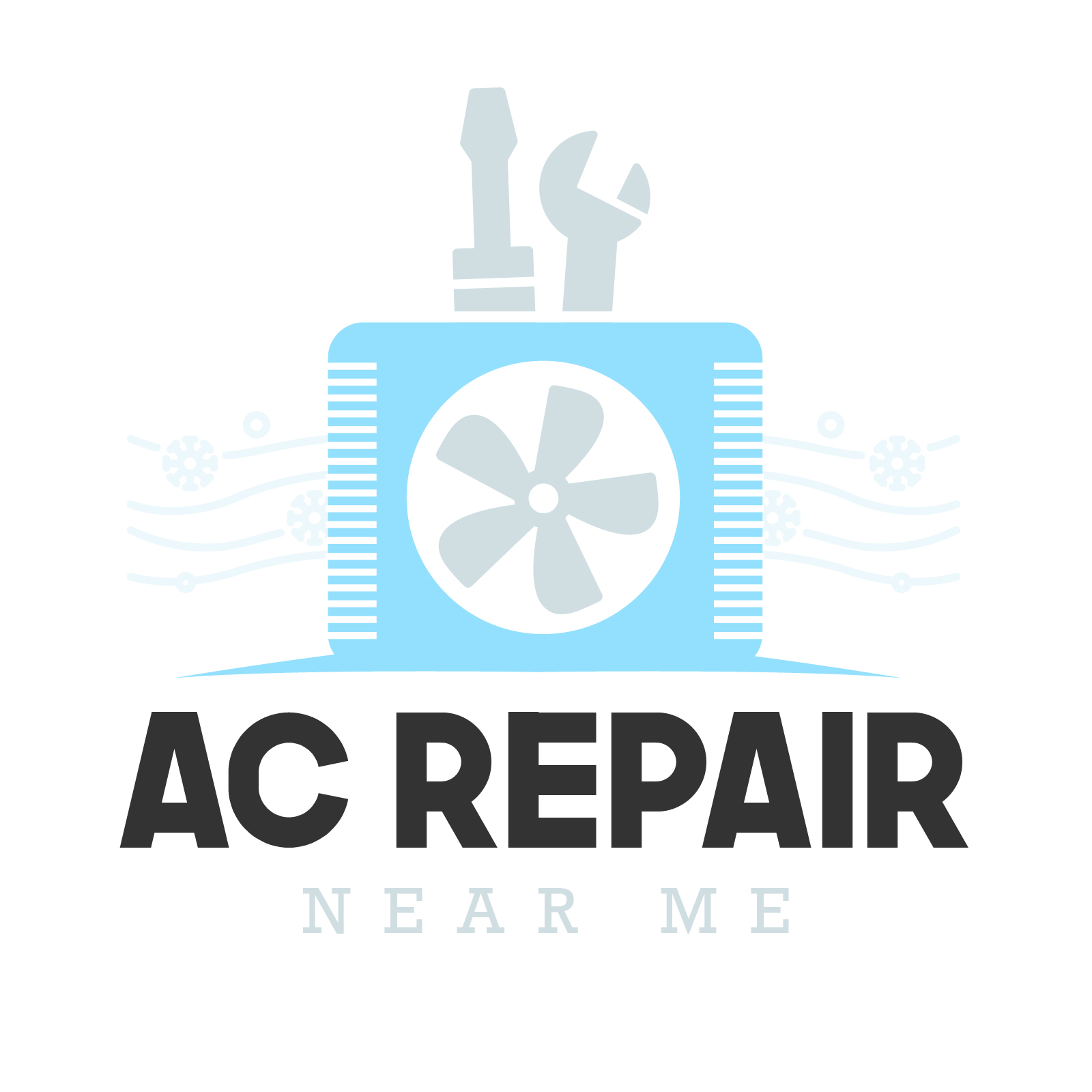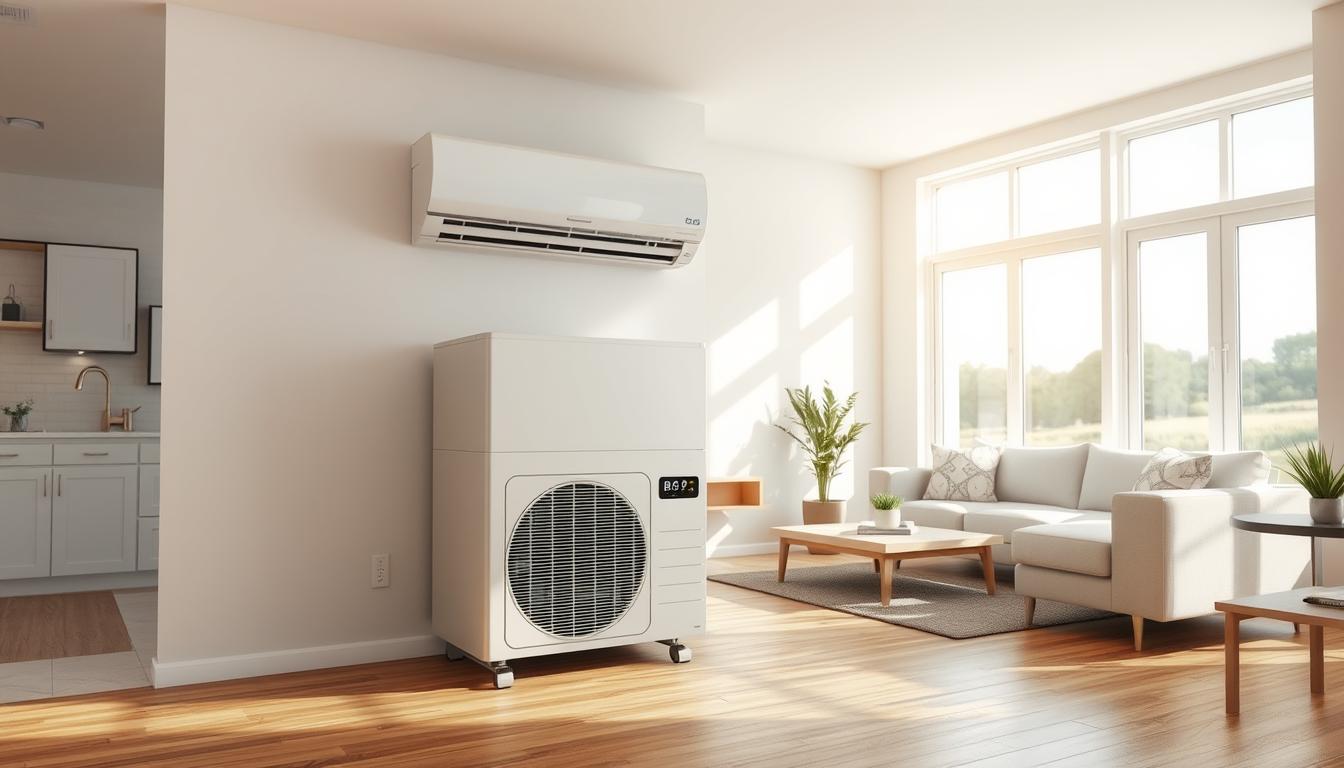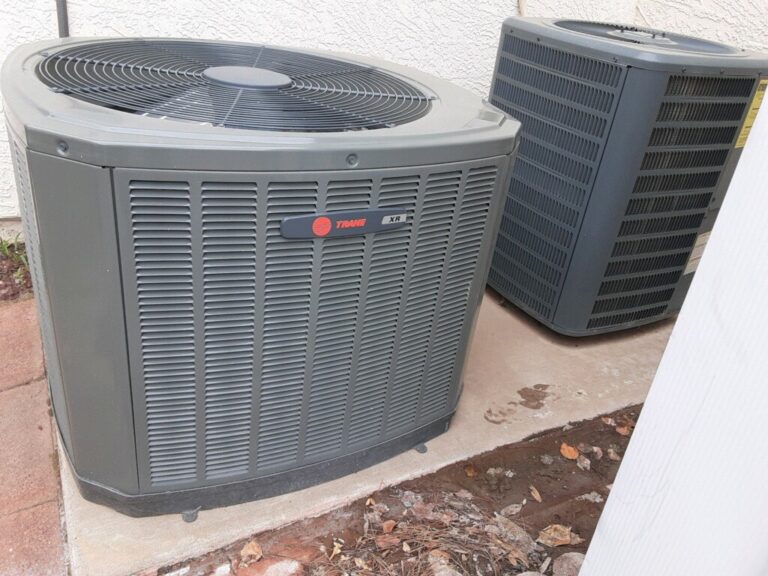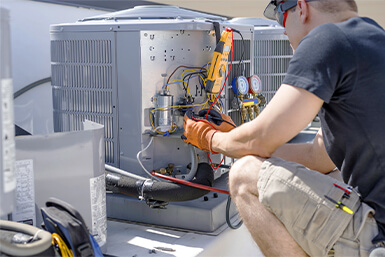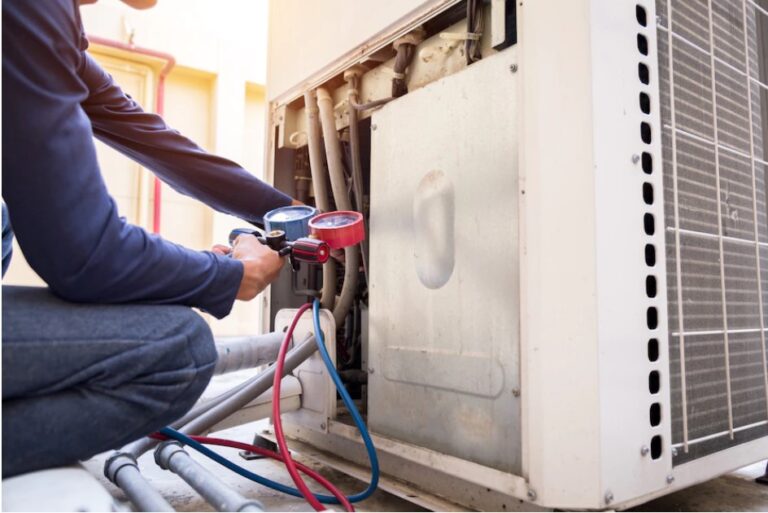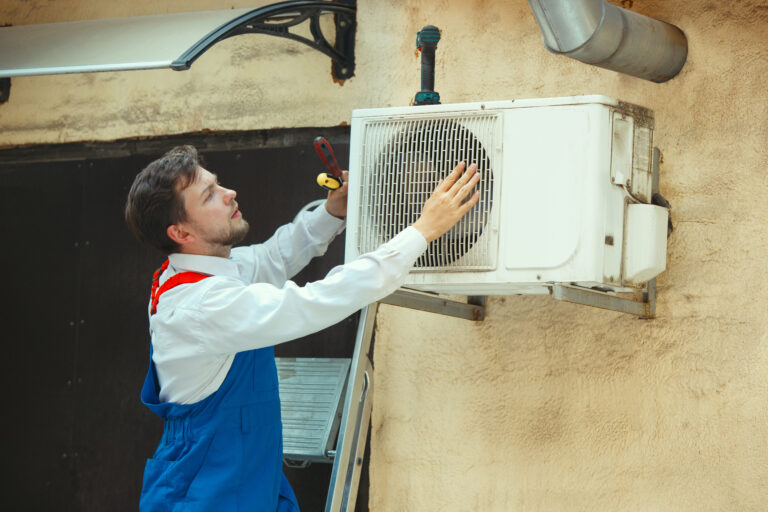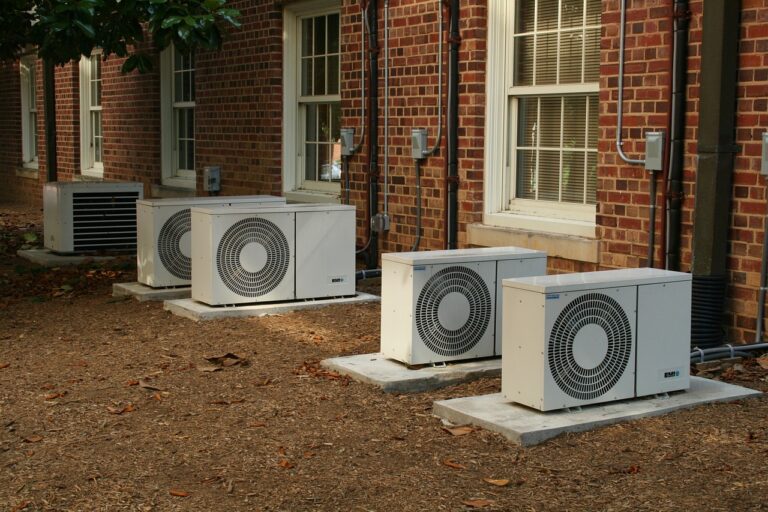When Is the Best Time to Upgrade Your HVAC System?
Upgrading your HVAC system is a big decision. It affects your home’s comfort, energy use, and costs. Knowing when to upgrade is key.
As your HVAC system gets older, it works less efficiently. You might need to fix it often, which can cost a lot. This could mean it’s time for an upgrade. HVAC systems usually last 15 to 20 years, but this can change based on how much you use it and how well you maintain it.
Figuring out the best time for an HVAC upgrade can save you money and make your home more comfortable. Think about the seasons and how old your system is when planning to upgrade.
Understanding Your HVAC System’s Lifespan
Knowing how long your HVAC system will last is key to knowing when to upgrade. Different systems last for different times. Knowing this helps homeowners decide when it’s time for a new one.
Average Lifespan of Different HVAC Types
The lifespan of HVAC systems varies a lot based on the type.
Air conditioners usually last about 10 years. Furnaces and boilers can go up to 15 years or more with good care.
Heat pumps, a common HVAC system, last between 10 to 15 years.
| HVAC System Type | Average Lifespan (Years) |
|---|---|
| Air Conditioner | 10 |
| Furnace | 15 |
| Boiler | 15 |
| Heat Pump | 10-15 |
“The key to maximizing the lifespan of your HVAC system is regular maintenance and timely repairs.”
Signs Your HVAC System Is Aging
There are clear signs your HVAC system is getting old and might need a new one.
One sign is needing frequent repairs. If you’re calling a repair tech often, it might be cheaper to get a new system.
Other signs include inconsistent cooling or heating and higher energy bills without using more energy.
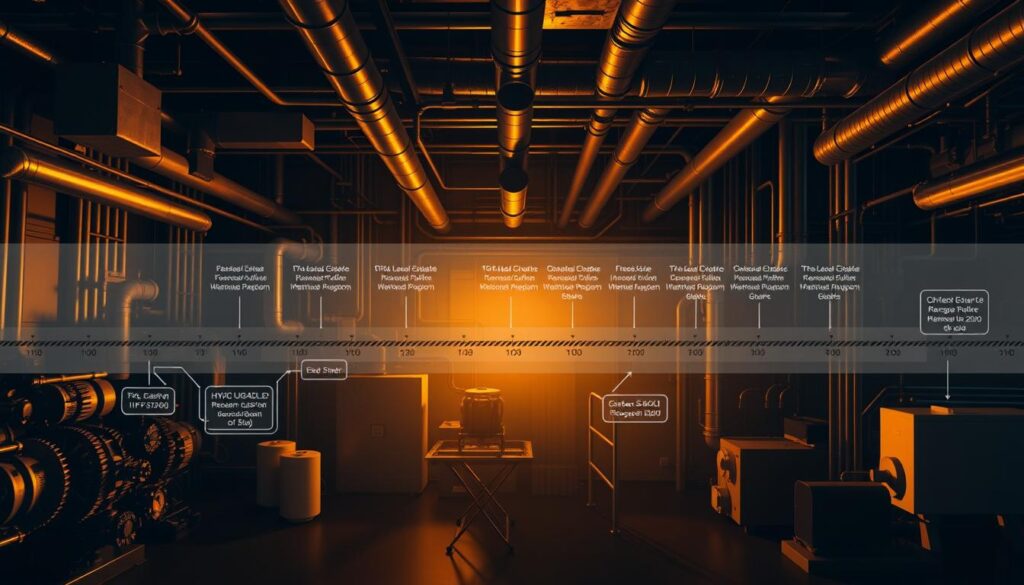
By spotting these signs and knowing your system’s average lifespan, you can decide the best time to upgrade.
Seasonal Considerations for Upgrades
Seasonal factors are key when deciding when to upgrade your HVAC. Knowing how each season affects the upgrade can guide homeowners. This knowledge helps in making smart choices.
Benefits of Upgrading in Spring
Spring is a great time for HVAC upgrades. Specials and discounts are common during this season. This makes upgrades more affordable. Plus, contractors are less busy, which can lead to better prices and faster service.
Fall Upgrades: What to Keep in Mind
Fall is also a good time for HVAC upgrades. It’s wise to upgrade before winter. But, contractors might get busier as winter nears. Still, upgrading in fall ensures your system is ready for cold weather and you might find end-of-season sales.
| Season | Average Cost | Contractor Busy-ness | Manufacturer Discounts |
|---|---|---|---|
| Spring | $3,000 – $5,000 | Moderate | Yes |
| Summer | $3,200 – $5,500 | High | No |
| Fall | $3,000 – $5,000 | Moderate to High | Sometimes |
| Winter | $3,200 – $5,500 | Low to Moderate | Rarely |
In conclusion, spring and fall are strategic times for HVAC upgrades. By considering these seasons, homeowners can save money and ensure their system is efficient. This is crucial for the upcoming seasons.
Energy Efficiency and Cost Savings
As energy costs keep going up, getting a new, energy-saving HVAC system is wise. It cuts down on energy use and helps the planet. You’ll also save money on your bills and might get tax breaks.
How Upgrading Can Reduce Your Energy Bills
New HVAC systems use less energy than old ones. Upgrading means you’ll use less power. For example, switching to an ENERGY STAR model can save a lot of energy.
Key benefits of energy-efficient HVAC systems include:
- Lower energy consumption
- Reduced energy bills
- Enhanced comfort with better temperature control
- Potential for longer system lifespan
The U.S. Department of Energy says an ENERGY STAR HVAC can save 10% to 30% on bills.
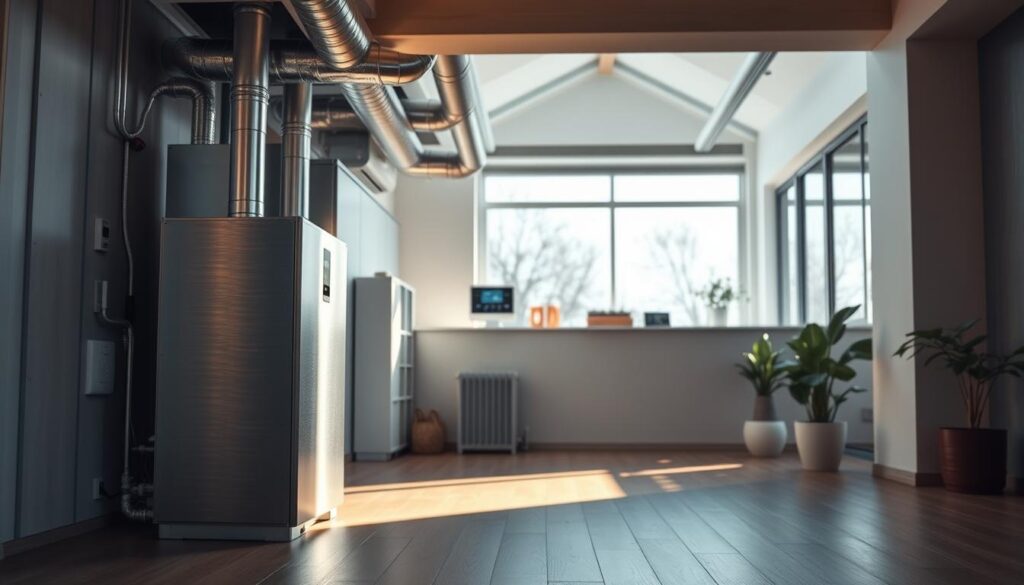
Tax Credits and Incentives for Upgrades
The U.S. government and utility companies give tax breaks and incentives for energy-saving HVAC upgrades. These can help pay for the new system.
Some incentives include:
| Incentive Type | Description | Potential Savings |
|---|---|---|
| Federal Tax Credits | Credits for installing energy-efficient HVAC systems | Up to $500 |
| Utility Company Rebates | Rebates offered by utility companies for energy-efficient upgrades | Varies by provider |
| State and Local Incentives | Additional incentives offered by states and local governments | Varies by location |
Using these incentives can make upgrading your HVAC system cheaper. It’s a smart financial move.
Signs That Indicate It’s Time to Upgrade
Knowing when to upgrade your HVAC system can save you money in the long run. As systems get older, they need more maintenance and work less efficiently than newer ones.
Frequent Repairs and Maintenance Issues
Regular repairs might mean it’s time for a new HVAC system. Frequent repairs can quickly add up, and a new system could save you money. Older systems also need more maintenance, which is both time-consuming and expensive.
“According to industry experts, when the repair cost exceeds 50% of the system’s value, it’s usually time to consider an upgrade.”
When the repair cost exceeds 50% of the system’s value, it’s usually time to consider an upgrade.
Inconsistent Cooling or Heating
Uneven temperatures in your home could mean your HVAC system is failing. This issue can stem from several causes, like old equipment or the wrong system size.
Getting a newer system can lead to more consistent and efficient heating and cooling. Modern HVAC systems offer better airflow and temperature control, making your home more comfortable.
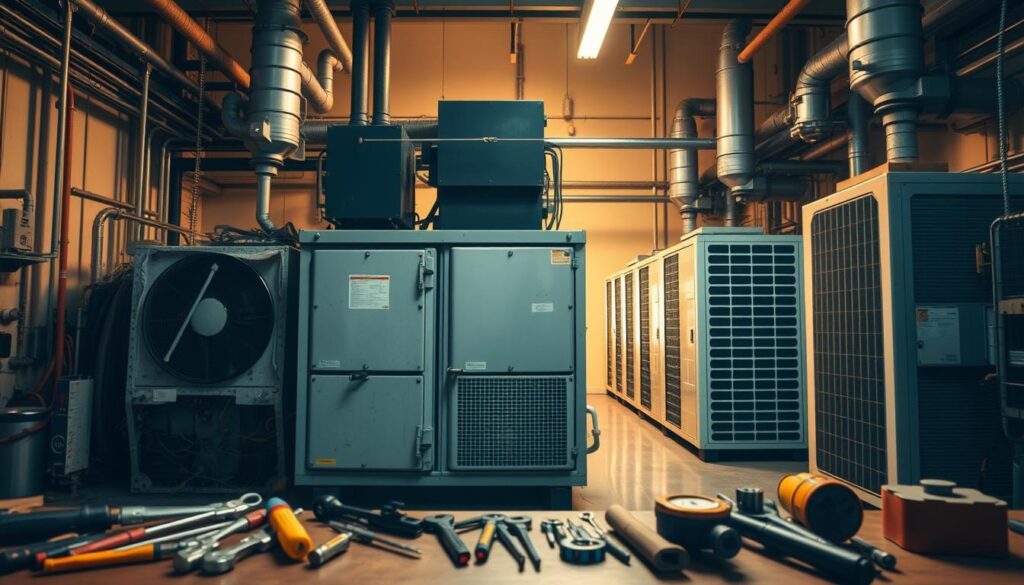
By recognizing these signs and acting early, you can keep your home comfortable and cut down on energy costs.
Planning Your HVAC Upgrade
Upgrading your HVAC can make your home more comfortable and energy-efficient. It’s not just about swapping out your old system. It’s about picking the perfect new one for your home’s needs.
Choosing the Right HVAC System for Your Home
Several things matter when picking a new HVAC system. The size of your home, insulation, and local climate are key. A system that’s too small won’t keep your home comfortable. A system that’s too big will waste energy by cycling on and off too much.
To find the right size, get a Manual J load calculation. This detailed assessment looks at your home’s layout, windows, and insulation. It helps figure out what system you need.
| Factor | Consideration | Impact |
|---|---|---|
| Home Size | Square footage, number of stories | Affects system capacity needs |
| Insulation | Type, quality, and condition | Influences heat loss and gain |
| Local Climate | Temperature extremes, humidity | Determines heating and cooling demands |
Hiring a Trusted HVAC Professional
After figuring out what you need, find a professional. Choose contractors with good reputations and experience. Check online reviews, ask for references, and make sure they’re licensed and certified.
A trusted HVAC pro will install your AC system right. They’ll also share tips on maintenance and how to use your new system. They can explain the benefits of different features and technologies in modern HVAC systems.
Conclusion: Making the Right Decision
Deciding when to upgrade your HVAC system can be tricky. It depends on the system’s age, how energy-efficient it is, and the season. Knowing these details helps homeowners choose wisely, improving comfort and saving on energy costs.
Assessing Costs and Benefits
Getting a new HVAC system is a big deal. It’s important to think about the costs and what you’ll get in return. New systems use less energy, saving you money on bills. They also make your home more comfortable and can even increase its value.
Timing Your Upgrade
Finding the best time to upgrade your HVAC is key. Spring and fall are usually the best times. The weather is mild, installation costs might be lower, and HVAC experts are more available. Planning your upgrade during these seasons can be very helpful.
